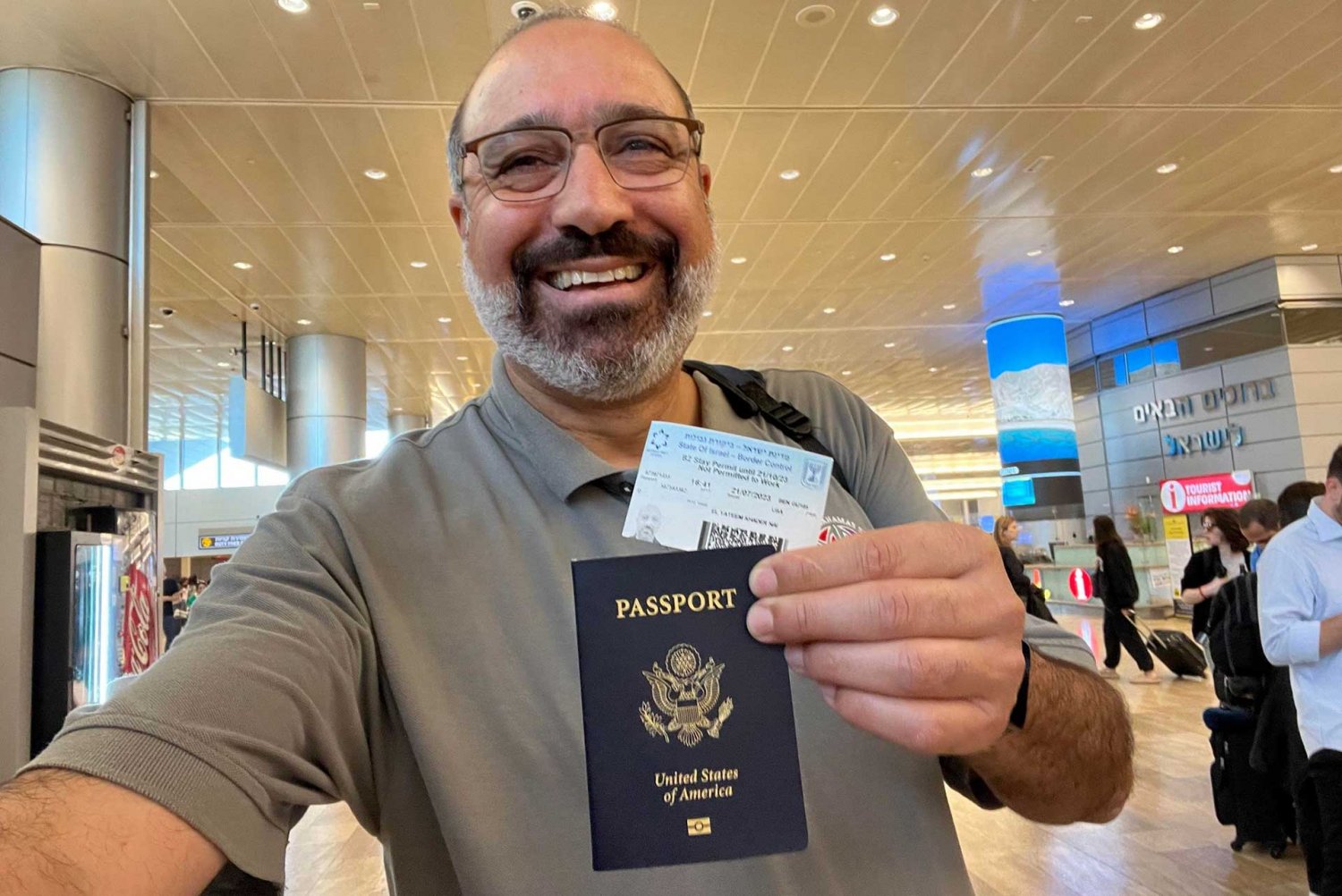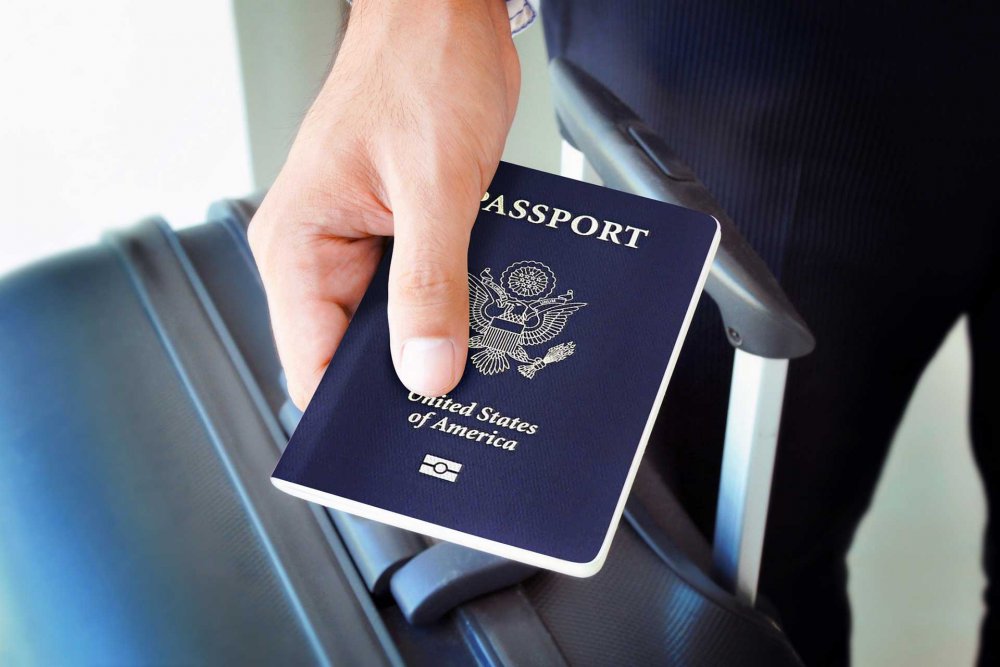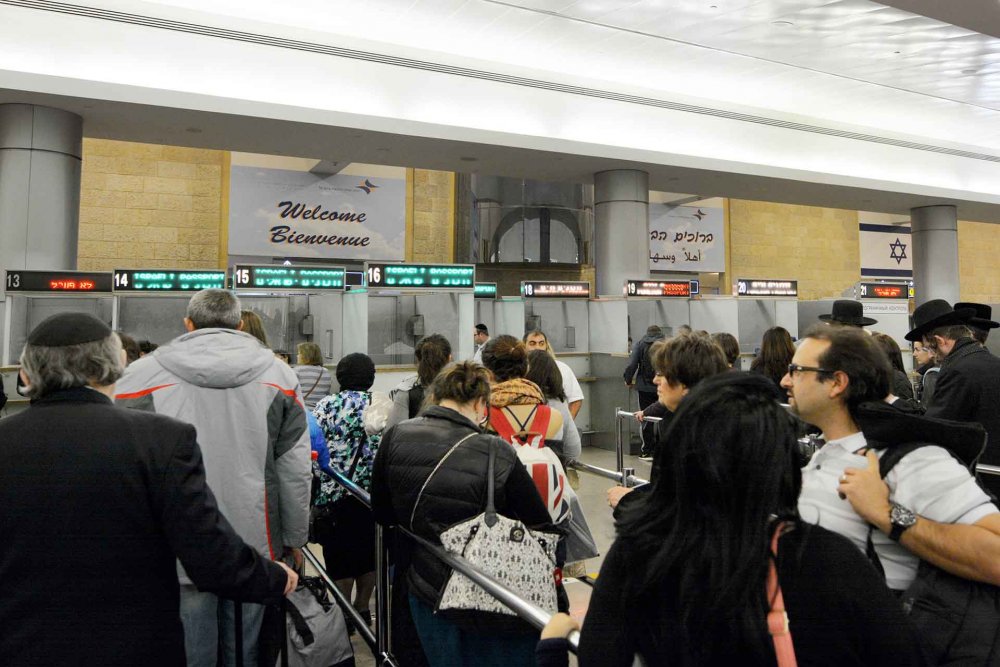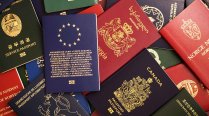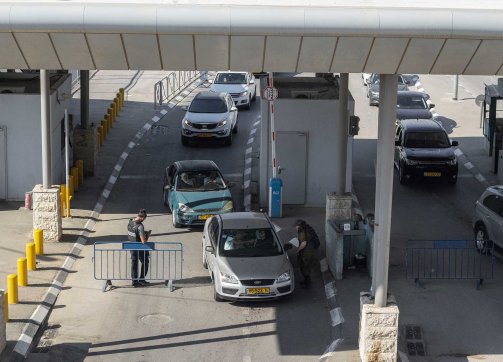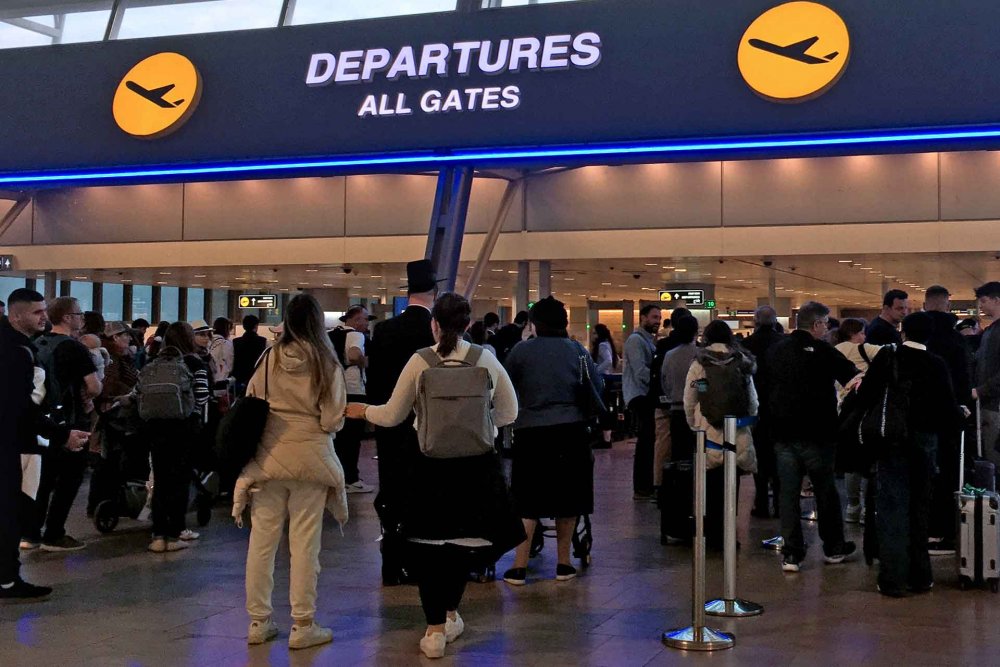A few years ago, my brother-in-law, Reverend Khader el-Yateem, attempted to visit Jerusalem via the Sheikh Hussein northern crossing point from Jordan to Israel. At the passport control and after a long wait, he was denied entry, even though he had a valid US passport. His wife, a Jerusalemite with Israeli permanent residency, was allowed to enter. The reason, the authorities at the bridge told him, was that he was born in Bethlehem. To prove it, they showed him an old Israeli army-issued ID card1 in his name. To them, his US passport was irrelevant.
But on July 21, 2023, Reverend el-Yateem posted on his social media account a picture of himself holding a copy of his US passport and the slip of paper given to him at the Ben Gurion Airport allowing him entry, with the comment “most uneventful arrival to Tel Aviv.” He was traveling with his family to attend a wedding in Palestine.
What changed in the intervening years is the Israeli attempt to join the 40 countries that participate in the US Visa Waiver program, which allows citizens of participating countries to enter the US without a visa provided they extend the same courtesy to US citizens arriving to their countries. The program has a number of requirements, one of which concerns the denials of applications from nationals of the applicant country for US visas. The denial rate should be under 3 percent. Normally the annual denial rate for Israelis is 6–10 percent; with the coronavirus pandemic, fewer Israelis have been traveling, so the denial rate went down, and all of a sudden Israel became partly eligible for the waiver program.2
Other requirements, however, needed to be addressed, among them the issue of total reciprocity. For Israelis to be admitted to the US without a requirement for a prior visa, US federal law mandates that like any country participating in the Visa Waiver program, Israel must treat all US citizens equally upon entry, exit, or transit “regardless of their race, religion, ethnicity, national origin, or membership in any other protected class recognized by U.S. law.” In short, countries entering the Visa Waiver program must demonstrate that they treat a blue (US) passport as a blue passport, commonly referred to as “blue is blue.”3 These reciprocity rules are required for all other nations in the US Visa Waiver program.

